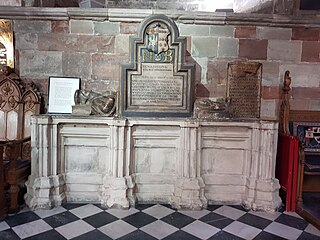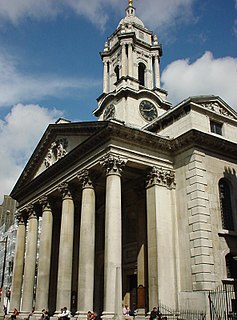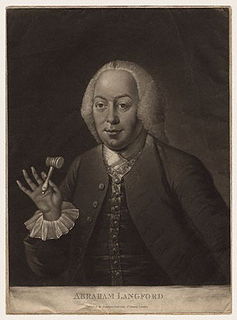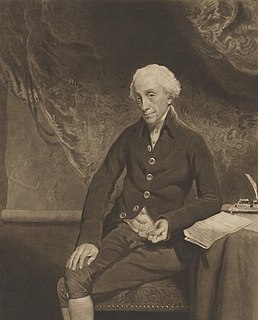Related Research Articles

Nicholas Bullingham was an English Bishop of Worcester.

William Cavendish, 1st Earl of Devonshire was an English nobleman, politician, and courtier.

William Talbot was an English Anglican bishop. He was Bishop of Oxford from 1699 to 1715, Bishop of Salisbury from 1715 to 1722 and Bishop of Durham from 1722 to 1730.

St George's, Hanover Square, is an Anglican church in the City of Westminster, central London, built in the early eighteenth century as part of a project to build fifty new churches around London. The church was designed by John James; its site was donated by General William Steuart, who laid the first stone in 1721. The building is one small block south of Hanover Square, near Oxford Circus. Because of its location, it has frequently been the venue for society weddings.
John Brine (1703–1765) was an English Particular Baptist minister.

James Johnson was an English prelate, successively Bishop of Gloucester (1752–1759) and of Worcester (1759–1774).
John Bowen was an English painter, genealogist and antiquarian.
John Bromley was an English clergyman, Catholic convert, and translator.

Thomas Dunham Whitaker (1759–1821) was an English clergyman and topographer.

Abraham Langford (1711–1774) was an English auctioneer and playwright.
The Socinian controversy in the Church of England was a theological argument on christology carried out by English theologians for around a decade from 1687. Positions that had remained largely dormant since the death in 1662 of John Biddle, an early Unitarian, were revived and discussed, in pamphlet literature.
Ralph Harrison (1748–1810) was an English nonconformist minister, composer and tutor.
The Rt Rev William Knox was Bishop of Killaloe and Kilfenora from 1794 to 1803 when he was translated to Derry.

Edward Forster the Elder was an English banker and antiquary.
Michael Tyson (1740–1780) was an English Anglican priest, academic, antiquary, and artist.
John Hutchins (1698–1773) was a Church of England clergyman and English topographer, who is best known as a county historian of Dorset.

John Scott-Waring (1747–1819) was an English political agent of Warren Hastings, publicist and Member of Parliament.
This article is about the particular significance of the year 1724 to Wales and its people.
References
- ↑ William Allport Leighton, Guide through the Town of Shrewsbury, p. 182.
- ↑ . Dictionary of National Biography . London: Smith, Elder & Co. 1885–1900.
- . Dictionary of National Biography . London: Smith, Elder & Co. 1885–1900.
- Attribution
![]() This article incorporates text from a publication now in the public domain : "Bowen, James (d.1774)". Dictionary of National Biography . London: Smith, Elder & Co. 1885–1900.
This article incorporates text from a publication now in the public domain : "Bowen, James (d.1774)". Dictionary of National Biography . London: Smith, Elder & Co. 1885–1900.